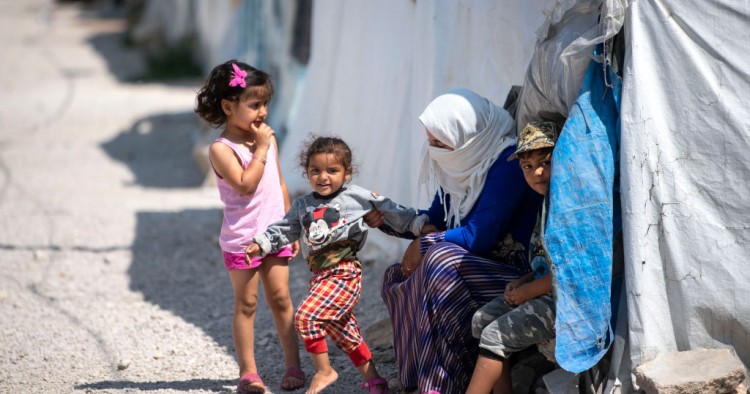Armed conflicts and natural disasters cause significant psychological and social suffering. The affects are acute in the short term, and can also undermine long-term mental health and psychosocial well-being. As these impacts may threaten peace, human rights, and development, one priority in emergencies must be the protection and improvement of mental health and psychosocial well-being.
In 2007, the Inter-Agency Standing Committee (IASC) developed guidelines to orient mental health and psychosocial aid programs (MHPSS) in humanitarian contexts. The purpose of these guidelines “is to enable humanitarian actors and communities to plan, establish, and coordinate a set of minimum multi-sectoral responses to protect and improve people’s mental health and psychosocial well-being in the midst of an emergency.”
The IASC emphasizes the core principles of working in humanitarian settings: human rights and equity, participation, do no harm, building on available resources and capacities, integrated support systems, and multi-layered supports. The last two principles entail a holistic approach to mental health and psychosocial support that considers as part of its mission the protection of human rights and the provision of basic needs through a pyramid of services. The IASC guidelines are valuable because they explain in detail best practices for MHPSS programs.
Theory vs. reality of implementation
All these principles and standard operating procedures are great in theory, but when it comes to their application, we find a huge discrepancy between best practices and actual practices. The implementation of MHPSS programs is hindered by two types of factors. First, there are the general factors that affect programs in all sectors of humanitarian aid. Second, there are factors related to mental health aid specifically.
Among the general factors is that donors want results that match the proposed plans. While this desire for predictable results is understandable, humanitarian contexts, especially those resulting from armed conflicts, change rapidly. As a result, proposals often become obsolete. Donors must be ready to accept that changing circumstances require adaptations.
The second factor is that the projects are usually short-term (lasting up to one year). While shorter-term projects provide more immediate gratification, they do not allow for adjustments based on lessons learned.
The bureaucratic red tape surrounding humanitarian funding is another general factor. Institutions make it difficult for feedback from the field to be translated into changes in strategies and approaches. This dynamic blocks feedback from mental healthcare providers and clients, who should be the most important players in shaping the agenda of aid organizations. Even if feedback reaches upper levels, it may not represent the genuine viewpoint of different stakeholders including the beneficiaries, as "desirable” feedback is more likely than objective feedback to climb chains of communication. This lack of meaningful feedback also means that standard psychological approaches are implemented without being adapted to unique social and cultural contexts.
There are also factors that impede the implementation of quality MHPSS programs and projects in particular. Donors sometimes lack information about the MHPSS programs that they fund and assume, often mistakenly, that they are “clean” (e.g. money is not diverted). Often, programs are overseen by non-MHPSS staff who are not attuned to the specificities of MHPSS programs, such as the importance of individualized care. This leads to a focus on the number of beneficiaries and the quality of reports rather than the quality of care.
The impact of poorly implemented MHPSS programs
Mental health and psychological wellbeing are more than just a fundamental need or right. Without psychological wellbeing, it is more difficult to satisfy any need or enjoy any right. Mental health cannot be removed from its context and treated as a purely bureaucratic issue. If this mistake is made, individuals who are supposed to help relieve psychological distress will cause more of it by applying non-adapted programs to complex social, cultural, and political humanitarian contexts. Reaching "the targeted" number of beneficiaries will be prioritized over ensuring the quality of services.
Failure to consider the context surrounding mental health issues may also lead to a hypocritical approach by governments that support dictators (or at least remain silent about their crimes) while generously supporting MHPSS programs for the victims of these dictators.
Psychological problems derive from "disordered” environments that we must fix before taking care of problems on the individual level. No matter what we do to help restore the psychological wellbeing of displaced persons and refugees, we will fail as long as the perpetrators remain unpunished. We will fail as long as injustice and hostilities persist. We will fail as long as services are provided without consideration for the social and political context.
What we need is a paradigm shift in planning and implementing MHPSS programs. To succeed, we need to empower mental health care providers and clients (beneficiaries). We also need to fix the environments in which they work and live. A new approach is needed. Let's simply call it "Justice Psychotherapy."
Dr. Mohammad Abo-Hilal, MD, is a clinical psychiatrist who founded Syria Bright Future to help Syrian refugees, particularly children. Its programs include one-on-one therapy and group sessions that help children cope with nightmares and flashbacks. Himself a refugee, he fled Syria in 2011. The views expressed in this piece are his own.
Photo by Victoria Jones/PA Images via Getty Images
The Middle East Institute (MEI) is an independent, non-partisan, non-for-profit, educational organization. It does not engage in advocacy and its scholars’ opinions are their own. MEI welcomes financial donations, but retains sole editorial control over its work and its publications reflect only the authors’ views. For a listing of MEI donors, please click here.













